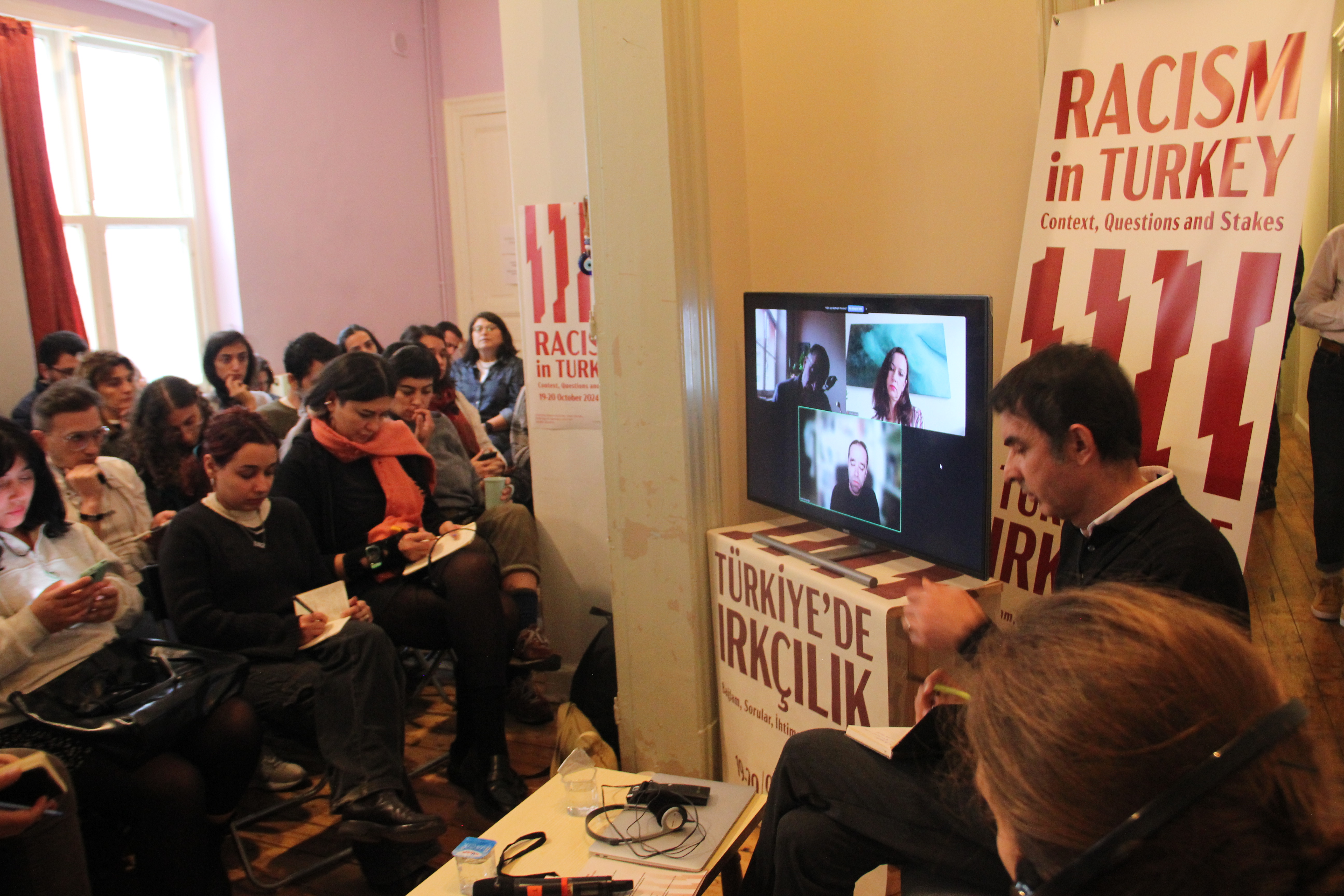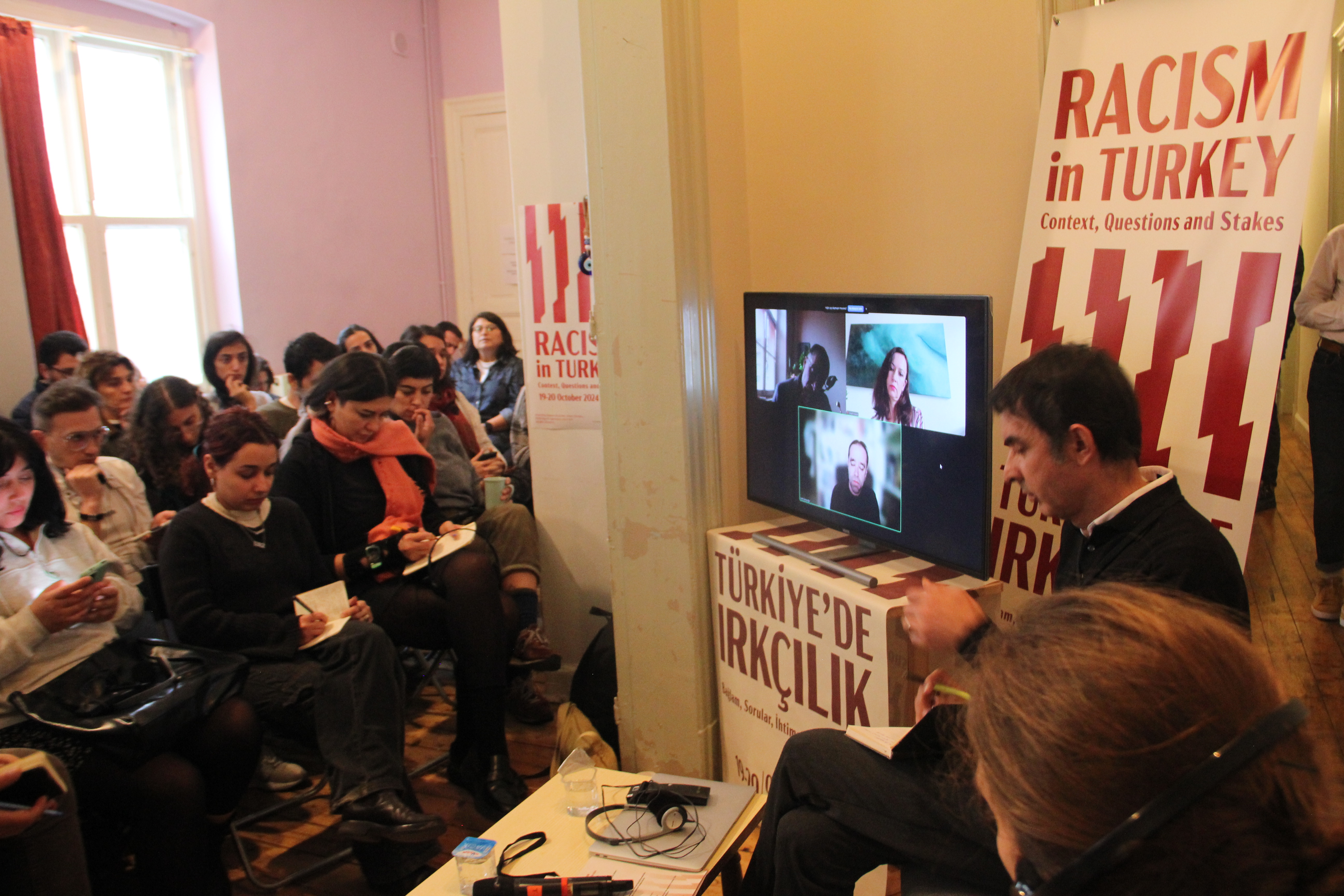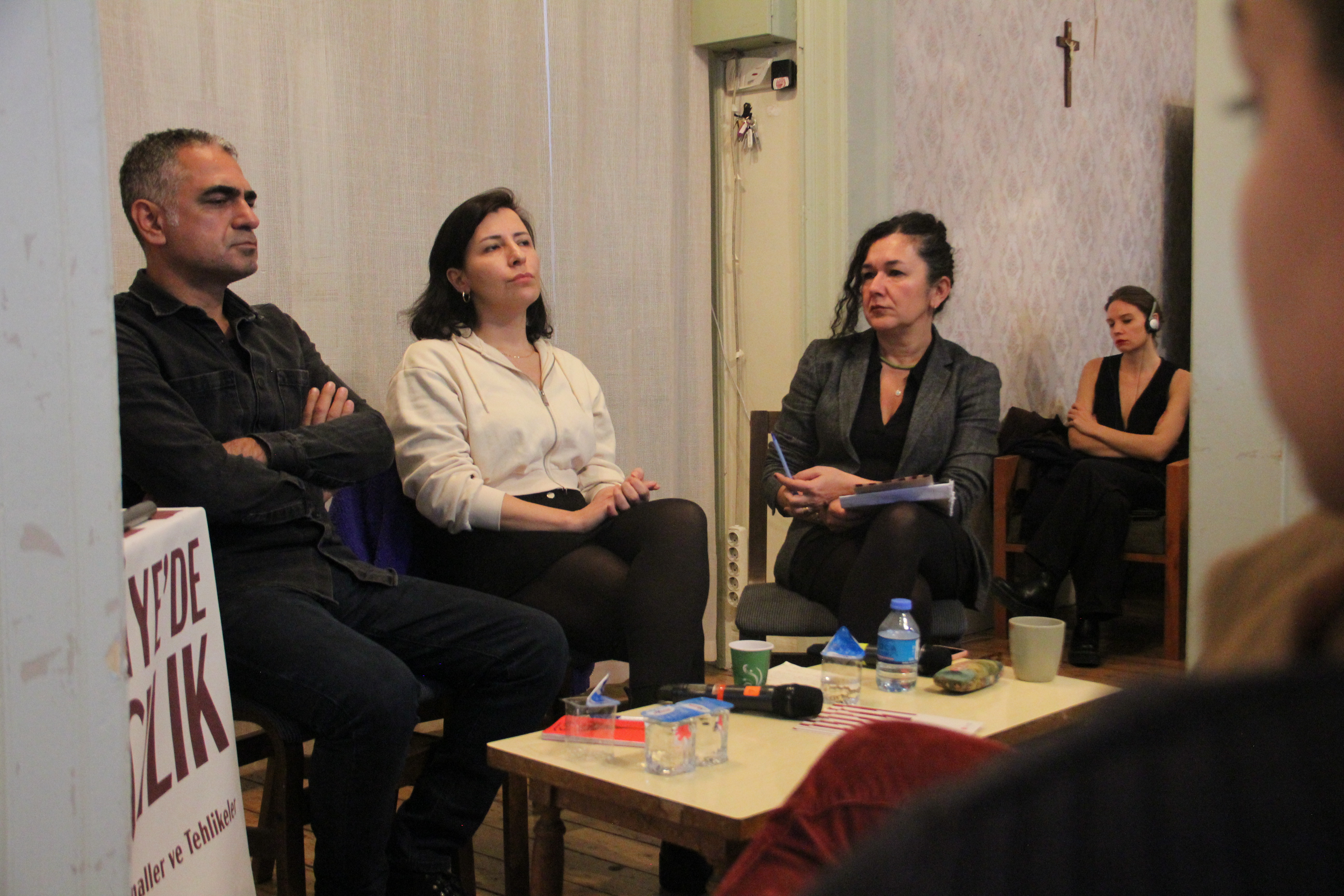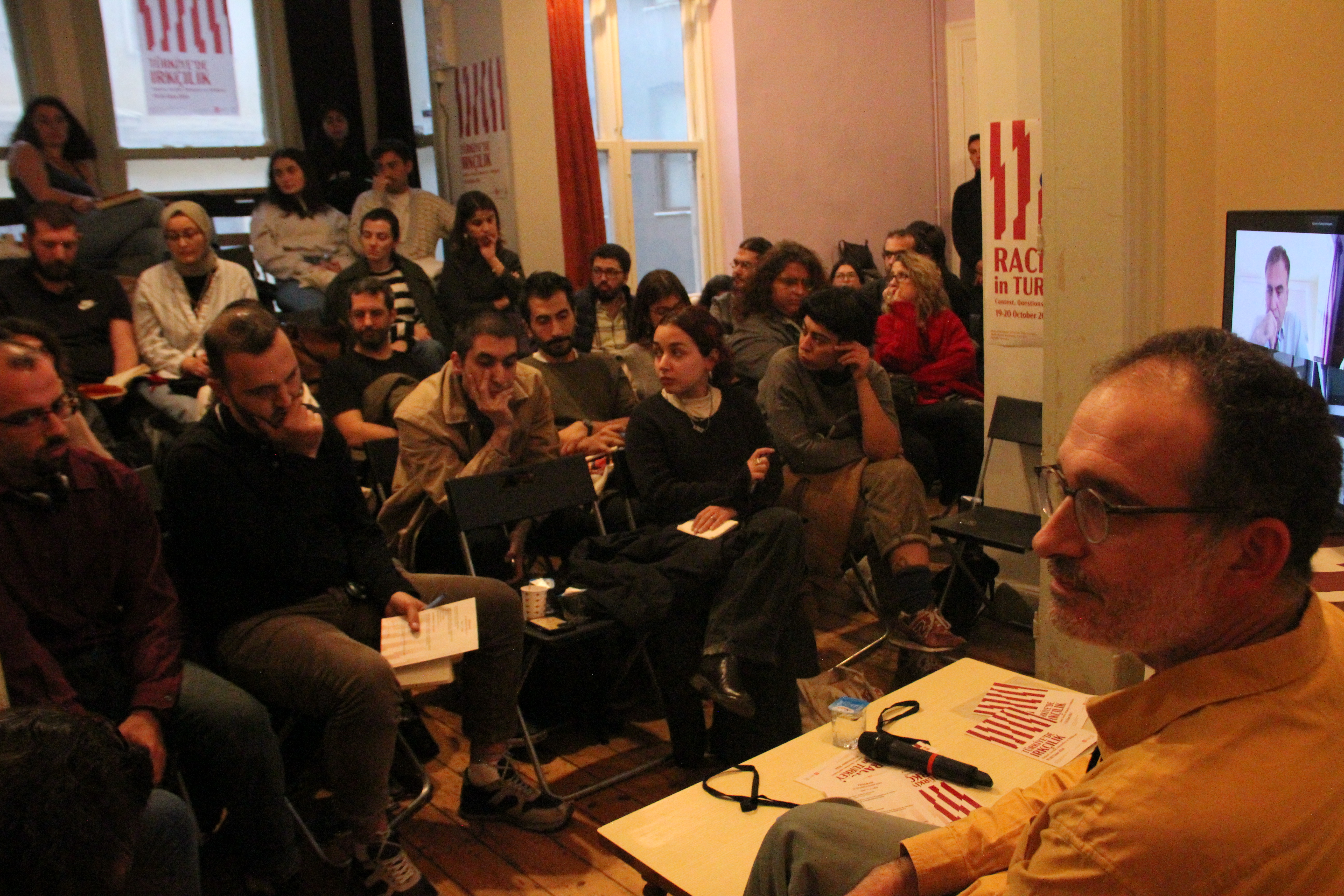The rising right, not only in Turkey but all over the world, together with the strengthening "fascist international", has gone beyond the timid tone that begins with "I am not a racist, but..." and comes to a point where "certain race" exclamations are flying in the air and they are rebelling against the "taking away of the right to racism". A dose that has become a part of everyday language, mixed with humour, demanding not invisibility but extinction from the target audience is becoming normalised. The conference on ‘Racism in Turkey’, organised by Istos Publishing with the support of the London School of Economics on 19-20 October, aimed to bring all these issues to the visible side of the table and discuss them.
Why do we talk so little about racism in Turkey? According to the view that has historical roots and dominates the mainstream of the day, there is no racism in Turkey. It is not surprising that a view that has digested only the "official" version of history and has been kneaded with the founding nationalist mortar or the new consistency of this mortar that has transformed over the years, has come to this conclusion. However, even from those who question this approach at certain levels, it is not impossible to hear a kind of thankful expression of ‘there are many issues, but at least there is not that one’. Perhaps more importantly, the manifestations of this ignorance, of attributing secondary importance to racism ‘among so many issues’, may also manifest themselves in the world of critical thought and leftist political circles.
Of course, everything starts with what, how and for what you define. It is important how the concepts of race and racism are defined, what kind of historical context they are placed in; it is necessary to point out the way they function together with other social, political, economic and gender-based hierarchical categories, the masks they hide behind and the new forms they take. Only in this way can the structural nature of racism, its prevalence and the extent to which its roots extend over a wide area become apparent and be rendered invisible. Discrimination against non-Muslims, which needs to be addressed according to different periods but always remains a constant, the manifestations of anti-immigrant/anti-refugee sentiments, especially in the case of Syrians, racism at the core of assimilationist Kurdish policies, the weight of Arab racism that permeates the understanding of the Palestinian issue, and the examples of undisguised exclusion of Africans in Turkey make this issue of invisibility debatable, of course. The rising right, not only in Turkey but all over the world, together with the strengthening "fascist international", has gone beyond the timid tone that begins with "I am not a racist, but..." and comes to a point where "certain race" exclamations are flying in the air and they are rebelling against the "taking away of the right to racism". A dose that has become a part of everyday language, mixed with humour, demanding not invisibility but extinction from the target audience is becoming normalised.
The conference on ‘Racism in Turkey’, organised by Istos Publishing with the support of the London School of Economics on 19-20 October, aimed to bring all these issues to the visible side of the table and discuss them. Sometimes, choosing a single title in such events can lead to a program that is ready to find it everywhere, and therefore is prejudiced against the opposite and demands all the attention there in order to justify its purpose. The sessions, which spanned two days on context, questions, possibilities and dangers, included presentations that pointed out racism in nuances in order to reveal its interaction and intersectionality with other forms of discrimination that the age has raised. The desire to talk and listen together was important. The modesty of this conference, which started with the acknowledgement from the beginning that two days would not be enough, makes it quite impossible to summarise all that was said in one article. The good thing is that this discussion will turn into a book in time.
Skull racism
Özgür Sevgi Göral and Foti Benlisoy opened with a speech in which they stated that a framework trapped in clichés causes us to overlook the systemic structure of racism and the ways in which it reproduces itself. An imagination of racism that focuses on ‘skullcapism’ leads to the exclusion of anything beyond biological racism. When looking at history in Turkey, the racialised property regime of the primitive accumulation process between 1912-22 could be obscured in addition to the visible racism of the 1930s.
Benlisoy mentioned that it is problematic to treat racism as a discursive or individual issue related to language, to reduce it to a kind of ignorance that can be solved with individual awareness and even education. He underlined that he is distant from the understanding, which has been cloaked in a part of the left, that relegates and subordinates racism to identity politics as an ideological conspiracy to divide the working class.
Pointing out that the working class was already racialized in the classical Marxist narrative, Göral also drew attention to the daily aspects of racism that operate together with all exploitation and domination mechanisms, are articulated with the heteronormative system and patriarchy, and do not express itself only as an excess of violence.
Racialised property regime
Although it is not possible to touch on all of it, here are some key notes from the conference... Under the title Race, Class and Capitalism, it was important that Doğan Çetinkaya shifted the academic perspective, which had locked the history of Turkey's capitalistisation to the 19th century, to the racialised shaping of the primordial accumulation from the 17th century onwards, and pointed to the anti-Muslim opposition in the Turkish national identity through the Armenian Genocide and exchange practices. Seda Altuğ also looked at the late Ottoman and early Republican periods from the perspective of the property regime, through examples of confiscation of the land and dispossession. In another session, Suavi Aydın, Erol Ülker, Yael Navaro and Barış Ünlü continued to look at the link between Turkish nationalism and racism, the construction of the other and colonial modernity as violence itself. In the session focused on the city, Begüm Özden Fırat traced the use of property as a tool for the production of consent and the creation of an acceptable citizenry in more recent urban and racialised dispossession practices, and looked at the social movements arising from these practices; it was important to point out the need to redefine ‘public’ in order not to fall into the defence of private property. Bahadır Özgür explained the need for a new labour force, which can only be met through hierarchy and tyranny, and urban transformation movements through capitalism changing its shell.
Nazan Üstündağ discussed the grammar of racialisation in the context of the forced migration of Kurds and the enslavement of the female body. Cenk Saraçoğlu drew attention to the parallel labour regime established through the spread of racism through refugees, and how even pogroms are treated as pathology and used to depoliticise problems ranging from health to education. Sharing experiences from the field on the practices of Turkish and Syrian workers working and resisting together, Birtek-Sen General President Mehmet Türkmen complained that explaining the reasons for racism is not enough to eliminate racism. Likewise, Başak Kocadost from the We Want to Live Together Initiative spoke about the right's materialisation of the structural causes of migration and the inability of refugees themselves to take part in the anti-racist struggle for fear of legal sanctions or violence.
In the panel on race and the city, Waseem Ahmad Siddiqui made a presentation on the politics of racism against refugees based on ‘human dignity’ and shaped by his own experience. Helen Mackreath, one of the core team organising the conference, has been working on migration and Syrians in Istanbul for many years. She too analysed the city from the Syrians' perspective as a prison with loose rules. The reason why there were few Syrians in the hall and why they refrained from using the concept of racism when telling their stories was actually included in the content of the conference; they were afraid.





